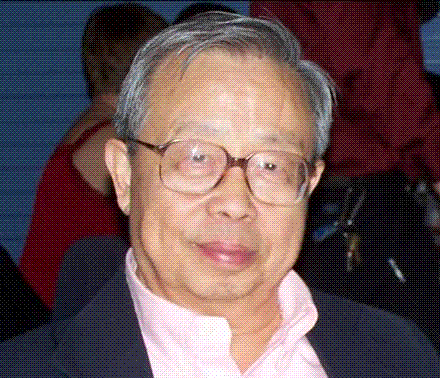Fang Lizhi isn’t best known for his seminal paper on the Big Bang theory, however. As the New York Times’ obituary states:
Fang Lizhi, whose advocacy of economic and democratic freedoms shaped China’s brief era of student dissent that ended with the 1989 Tiananmen Square protests and his exile, died on Friday in Tucson, Ariz., his son, Fang Ke, said Saturday.
Mr. Fang was 76. The cause of death was not known, his son said in a telephone interview.
It’s obvious you won’t hear about Fang in Chinese news or newspapers, but that doesn’t mean there isn’t a proper amount of interesting reads about the man. We start with James Fallows’s tribute, in which he links to Orville Schell’s May 1988 profile of Fang in the Atlantic that compares him to Soviet Nobel Peace Prize winner Andrei Sakharov in the headline.
We can then head over to the Washington Post’s obit:
Mr. Fang inspired a generation, said his friend and fellow U.S.-based exiled dissident Wang Dan, who announced the death on Facebook and Twitter.
“I hope the Chinese people will never forget that there was once a thinker like Fang Lizhi. He inspired the ’89 generation and awoke in the people their yearning for human rights and democracy,” Wang wrote.
Before finally ending at the New York Review of Books, which has a collection of translated articles by Fang himself:
And the one you’re most likely to encounter in the coming days: China’s Despair and China’s Hope
UPDATE: Just as I was publishing this post, Global Voices came out with an interesting read:
Hu Xijin, chief editor of Global Times, another CCP mouthpiece, has apparently been granted the privilege of writing Fang Lizhi’s full name in Sina Weibo, and to propagate that Fang has been forgotten in China [zh]:
Mr. Fang Lizhi has passed away in the U.S at the age of 76. To be frank, I am quite sympathetic of him as an individual. What he pursued failed to follow the rhythm of China’s progress. He has been forgotten. I hope Chinese intellectuals will be more rational in the future. Chinese elites should not be supported and protected by foreign powers in confronting the country. Such situations belong to the past. The Dalai Lama may enjoy the most support now, but it will only be temporary. The chance of his success is equal to zero.
Hu’s comments left many infuriated and has drawn thousands of angry replies. Below are some of the typical ones:
Hu Xijin has positioned himself as the guard dog of the country, but you only safeguard the door of the privileged class, who feed you with meat-filled buns so that you’ll bite whoever promotes reform and democracy in this country.

















































